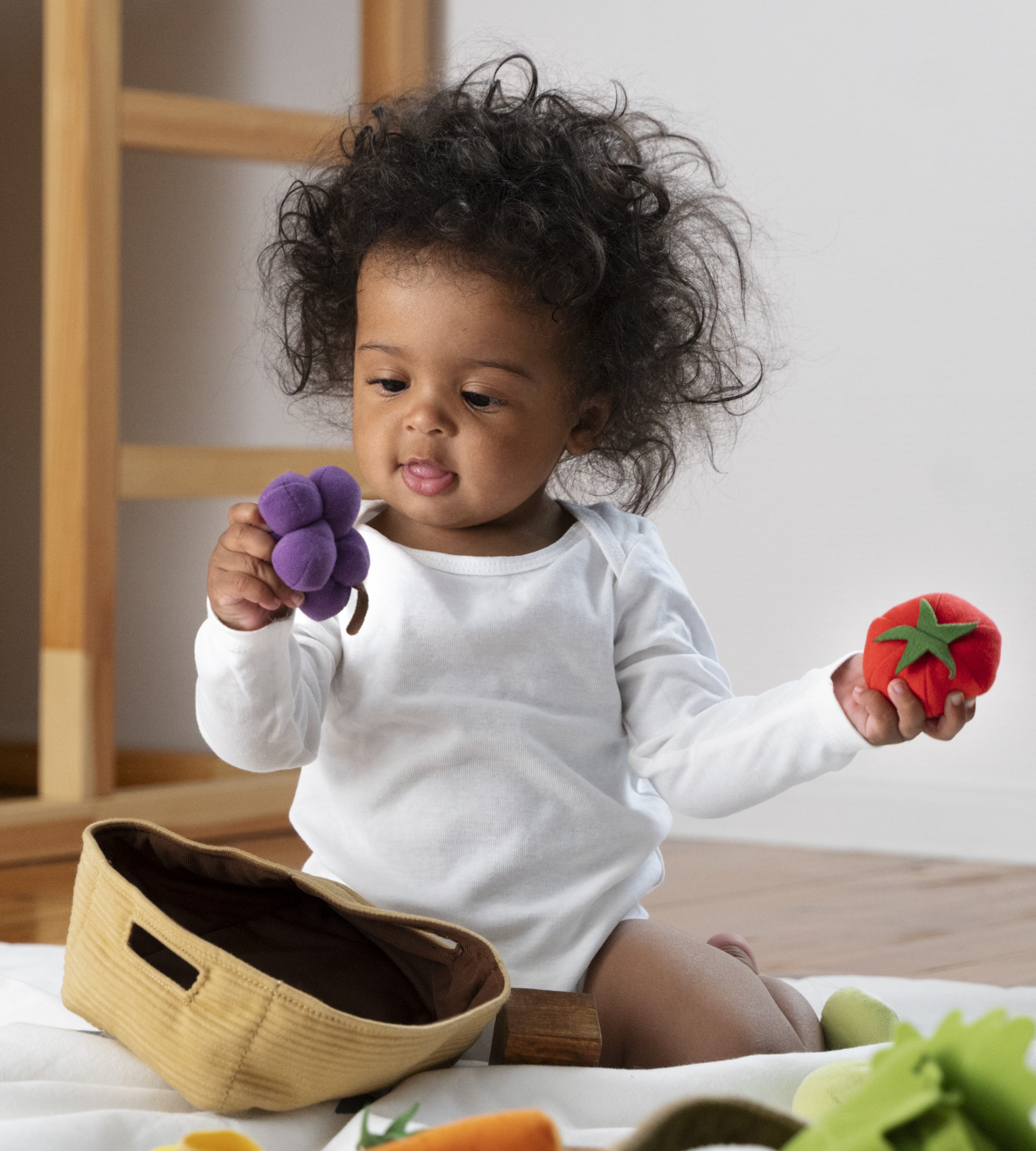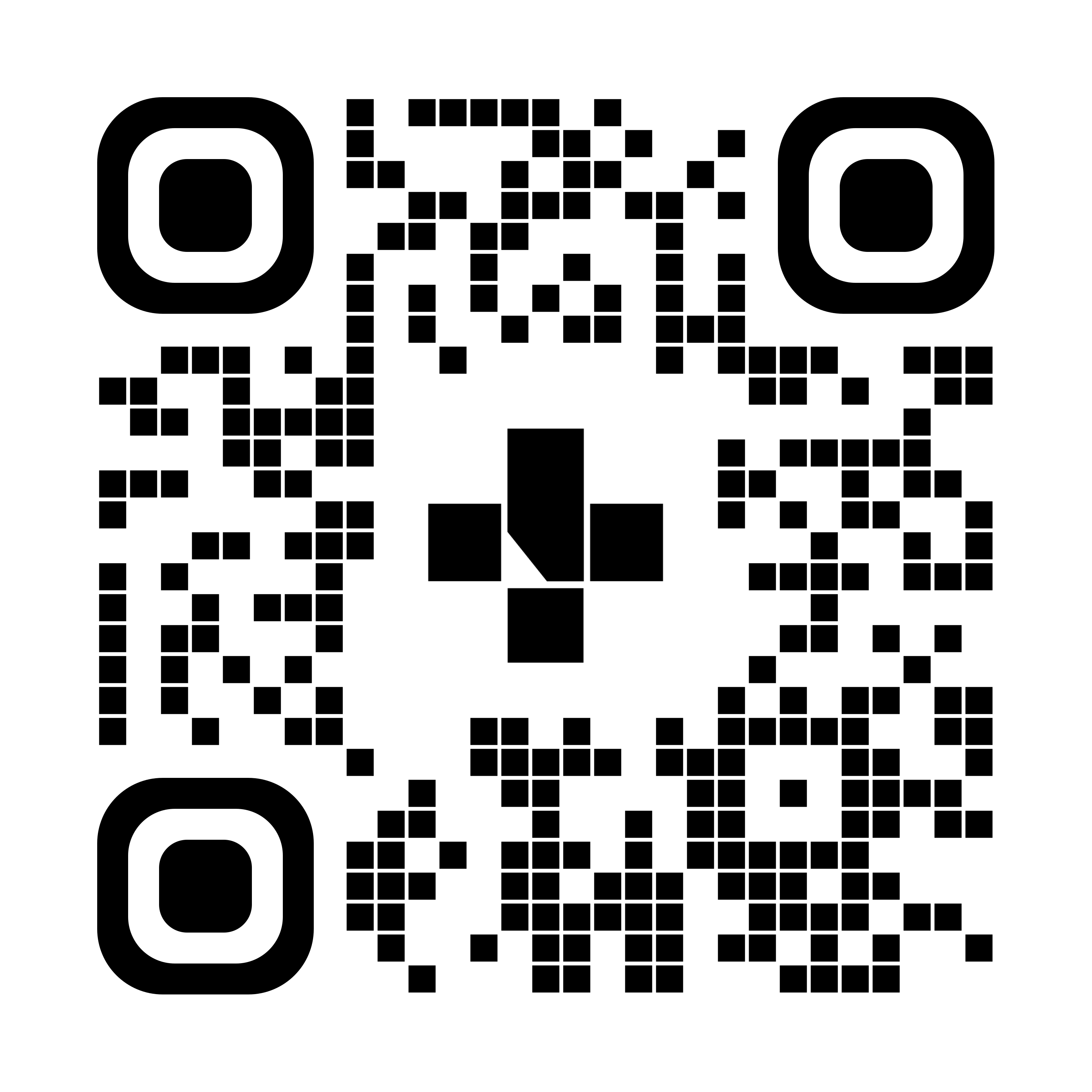Fine Motor Development
6 to 12 months

Photo credit: freepik.com
Your baby’s fine motor skills are growing quickly. Exploring toys and objects helps to strengthen and refine their grasp, reach, release, and two-hand (bilateral) coordination. Remember, babies learn these skills at their own pace. They’re developing new ways of grasping and holding things, using their fingers and thumbs more. Your baby is using their fingers to explore textures and the moving parts of a toy. When they do this, they’re building a skill called dexterity.
Your baby is using their hands and their whole body to move into different positions, to roll, and to crawl. This floor play continues to strengthen the muscles in your baby’s shoulders, arms, and hands.
6 to 9 months
When starting solid foods at 6 months of age, your baby may want to hold the spoon, try to bring it to their mouth, and bang it on the tray. When they see very small objects, like cut up pieces of food, they may try to scoop them into their palm with their fingers. This is known as raking. Even though they’re using their hands more, your baby will still bring toys to their mouth to explore textures.
As your baby learns to sit by themselves, they’ll turn and reach for toys. They’ll bang toys or clap their hands, showing more control of their arm and hand movements. Your baby is exploring the best way to hold things of different sizes, textures, and shapes. They’re getting better at scooping small objects into their palm. You might notice they’re holding a toy in each hand and they easily pass (transfer) toys between hands.
9 to 12 months
Your baby is learning to hold smaller toys and objects with their thumb, index, and middle fingers. For example, small pieces of food or blocks. By 12 months of age, they can pick up and hold small objects with 2 fingers. They’re starting to feed themselves by holding a spoon and bringing it to their mouth.
They can also release objects with control. You’ll see this when they start to put food into their mouth, drop food from their highchair, drop toys into a large container, or fling a toy or ball. You’ll see them poke things with their index finger and start to point at pictures in a book. Your baby is learning to coordinate both hands together when playing.
Everyday play
Encourage fine motor play in different positions, like sitting, crawling, or standing. While sitting, offer your baby toys and objects of different sizes to hold and explore with 1 or both their hands. You might see them struggle as they try to figure out how to use both arms at the same time. This is OK. It’s part of learning how each hand works on its own and how they work together. You may notice your baby enjoys picking up toys and objects, then dropping them. Offer your baby:
- Containers, like shoe boxes, plastic food containers, baskets, or even a laundry basket.
- Toys, rolled-up socks, or any small, light objects. They can drop them in the containers. Then they can take them out again.
Cover toys and objects with a small towel or scarf. Let your baby use their hands to discover what's underneath.
Continue to offer books, toys, and objects of different shapes, sizes, and textures to help your baby develop skills like grasp, reach, release, bilateral coordination, eye-hand coordination, and dexterity.
Help build your baby's fine motor skills
Think about:
- Which features (texture, shape, sounds, size, moving parts) encourage your baby to explore toys and objects.
- Offering toys that encourage them to use both of their hands.
- What containers and small objects you can give your baby to fill and dump.
Be safe
- Stay with your baby if they're on a high surface, such as a changing table, bed, or table.
- Avoid choking hazards, like small objects or toys, with parts that can easily break or fall off.
- Make sure toys and objects are made with safe materials and can be cleaned, washed, or wiped.
When should you call for help?
Your baby may need more support if:
- by 6 months, your baby:
- tends to keep their hands closed or uses one hand more than the other
- doesn't reach for toys, hold them, or release them on purpose
- by 12 months, your baby:
- doesn't hold a toy or object in each hand at the same time
- doesn't use 2 fingers to hold small objects (pincer grasp)
For more information or help with fine motor struggles, contact:
- Health link at 811
- An occupational therapist at your local pediatric community rehabilitation service
- Your doctor, public health nurse, or other healthcare provider
Resources
To see this information online and learn more, visit MyHealth.Alberta.ca/health/aftercareinformation/pages/conditions.aspx?hwid=custom.ab_fine_motor_dev_6_to_12_months_inst.

For 24/7 nurse advice and general health information call Health Link at 811.
Current as of: May 9, 2025
Author: Pediatric Rehabilitation Services, Alberta Health Services
This material is not a substitute for the advice of a qualified health professional. This material is intended for general information only and is provided on an "as is", "where is" basis. Although reasonable efforts were made to confirm the accuracy of the information, Alberta Health Services does not make any representation or warranty, express, implied or statutory, as to the accuracy, reliability, completeness, applicability or fitness for a particular purpose of such information. Alberta Health Services expressly disclaims all liability for the use of these materials, and for any claims, actions, demands or suits arising from such use.
